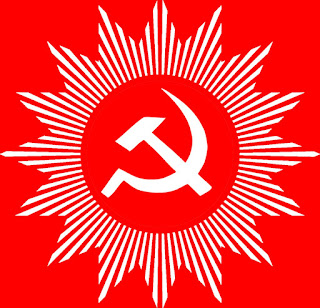In almost every discourse about the development in Nepal, Korean example is cited as the epitome of the economic transformation. Korea is the only country in the world to have transformed an aid receiving country to aid-giving country. What are the factors behind the success of the Korean economy? The purpose of this blog will be primarily to examine this question.
 |
| Image Source: Wikipedia |
The real growth of Korea started only in the 1960s, by which time the country had made significant reformation in agriculture and macroeconomic indicators. By then, the country had created a strong foundation for the export industry through a periodic focus on low to high-end products during the 1950s. It achieved the latter through its policy of overvalued currency in the 1950s and import substitution policies. Similarly, the government did not allow for the massive money-financed deficit and did not follow a real exchange rate policy. The combination of these policies ensured the profitability of the traded goods sector. As a result, government policies have sustained relative financial stability.
The sustained high level of investment since the early 1950s and large external financing kept the engine of the economy running for it to achieve sustained economic growth. A high level of investment was possible because of a) its people's tendency to save b) support from the United States and the United Nations. By the 1960s, Korea decreased external financing as external investors were turning away from the grant to loan. Korea could sustain economic growth firstly because of a) its competitiveness in the labor market and b) vibrant and trusted trading partners. It traded manufactured goods with the USA, Japan, and China, all of which were large, vibrant and growing economies. The opportunity to work in the European countries at the beginning of the 1950s and in the Middle Eastern Countries in the 1970s was an added advantage to Korea. These were the difficult times for Korea as the country was in the poverty trap in the 1950s and had to hold ground during oil shock in the 1970s. In the 1980s, Korea liberalized its economy and protected its infant industries and while also opening its market to import certain material intermediate materials for its export industry.
What was the Important Factor for the Development of the Korean Economy?
 |
| Image Source: Export Delaware Blog |
It is not a single policy per se that paved the way for the success of the Korean economy. The opportunity to study and learn from Japan, Taiwan, and other East Asian Countries, which went through a similar phase of development a few decades before Korea, gave Korea an edge to plan prudently to follow the positive footsteps of these countries or to avoid pitfalls. The constant support from the United States and the United Nations through grants, aid, loan, technological support and even military support at times played another role. While North Korea had to go through a long period of depressed growth because of its closed economy, South Korea, on the other hand, because of its open economy, trade liberalization and good relationship with the Western Economy leveraged the unique political situation to its benefit.
Talking about the policies, it was not a high-interest rate or low-interest rate, weak currency or strong currency, emphasis on agriculture or Heavy Chemical Industry, emphasis on the import or exports of the goods, or high reliance on the foreign aid or low reliance on foreign aid but the prudent selection of each of these choices when the situation demanded. For example, the government pushed for labor-intensive industries and brought programs to enhance human capital when there was high unemployment, but the country switched to heavy and chemical industries when the competitive edge in these industries dwindled. At times the government intervened excessively to correct misallocation and at other times it relaxed the command over the economy. I think the leadership that was very erudite, prompt, far-sighted, and strong-willed to understand the need of the given time to form the policies that best fit the situation was the most important factor behind the success of the Korean economy.
Which Factor Should Other Countries Copy?
The underlying aspects of Korean economic development were labor competitiveness, high investment through high national savings and external financing, appropriate government intervention and good macroeconomic policies. Investment is necessary for developing countries to make a large infrastructural investment or to industrialize to trade volumes. Emphasis is given to foreign direct investment or foreign aid to ensure a large influx of much-needed investment but the Korean success story suggests that the domestic saving is as important to break the poverty tap and in striding towards the high sustained economic growth. This is one aspect I think the developing countries can copy and should copy.
 |
| Image Source: Freight Waves |
The United States and the United Nation had a huge role in the development of Korea through its economic, technological and military aid and its support as a trading partner. The United States, in particular, was concerned about the development of South Korea to make it superior to North Korea, which was an ideological enemy to the United States. Not all the developing countries have this luxury to get support from the hegemonic power like the United States.







